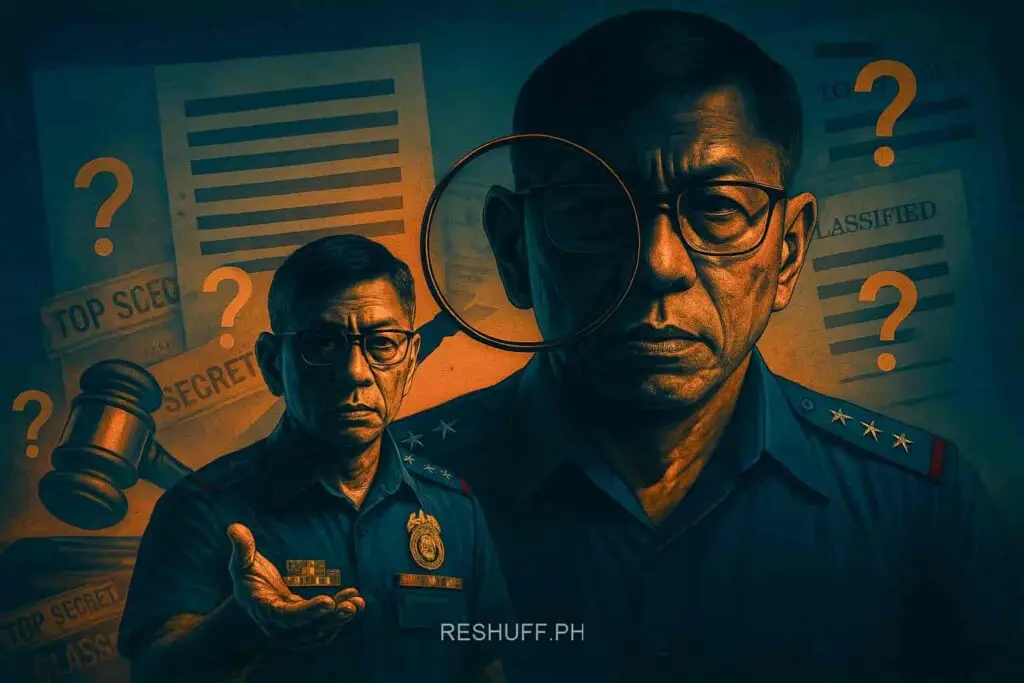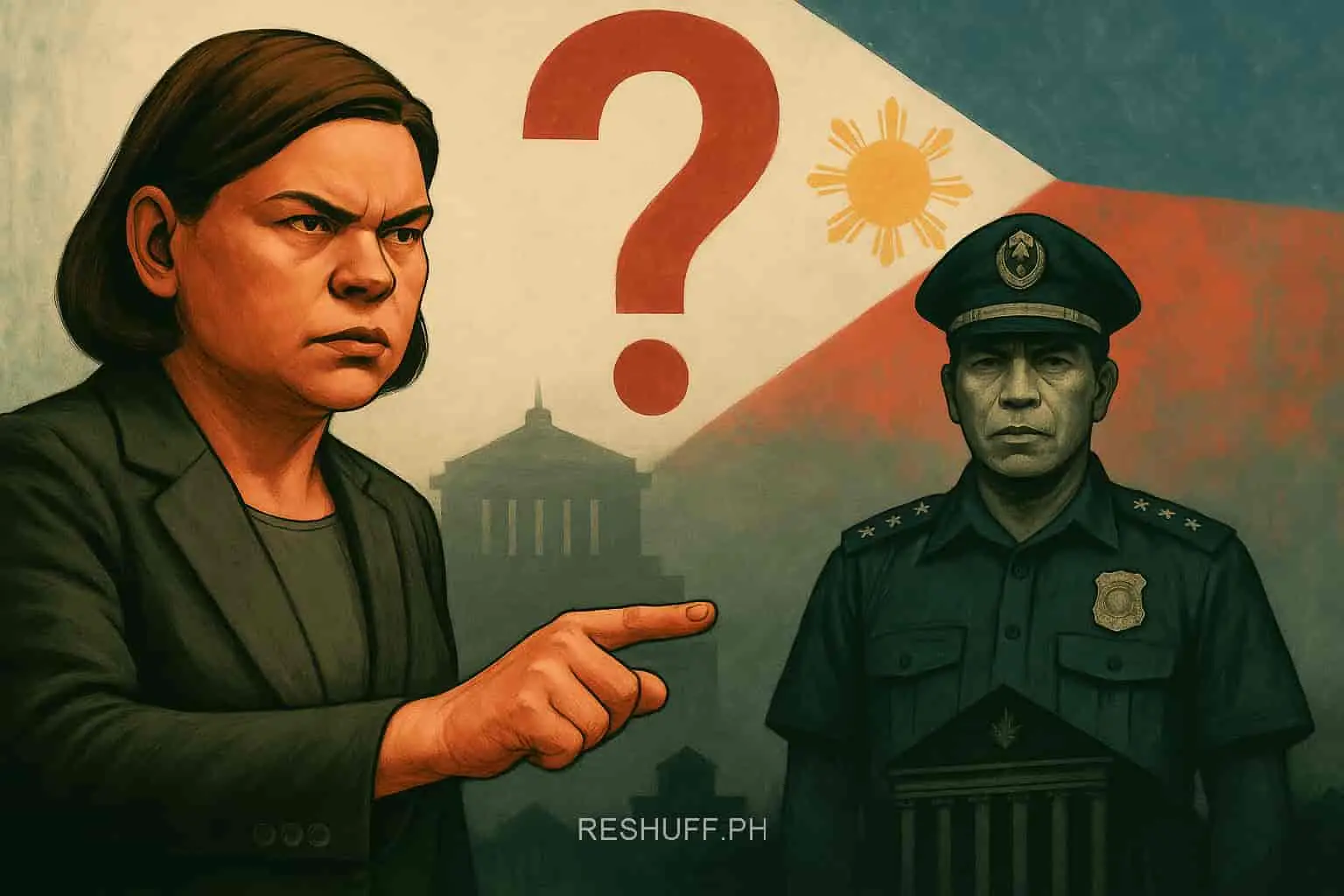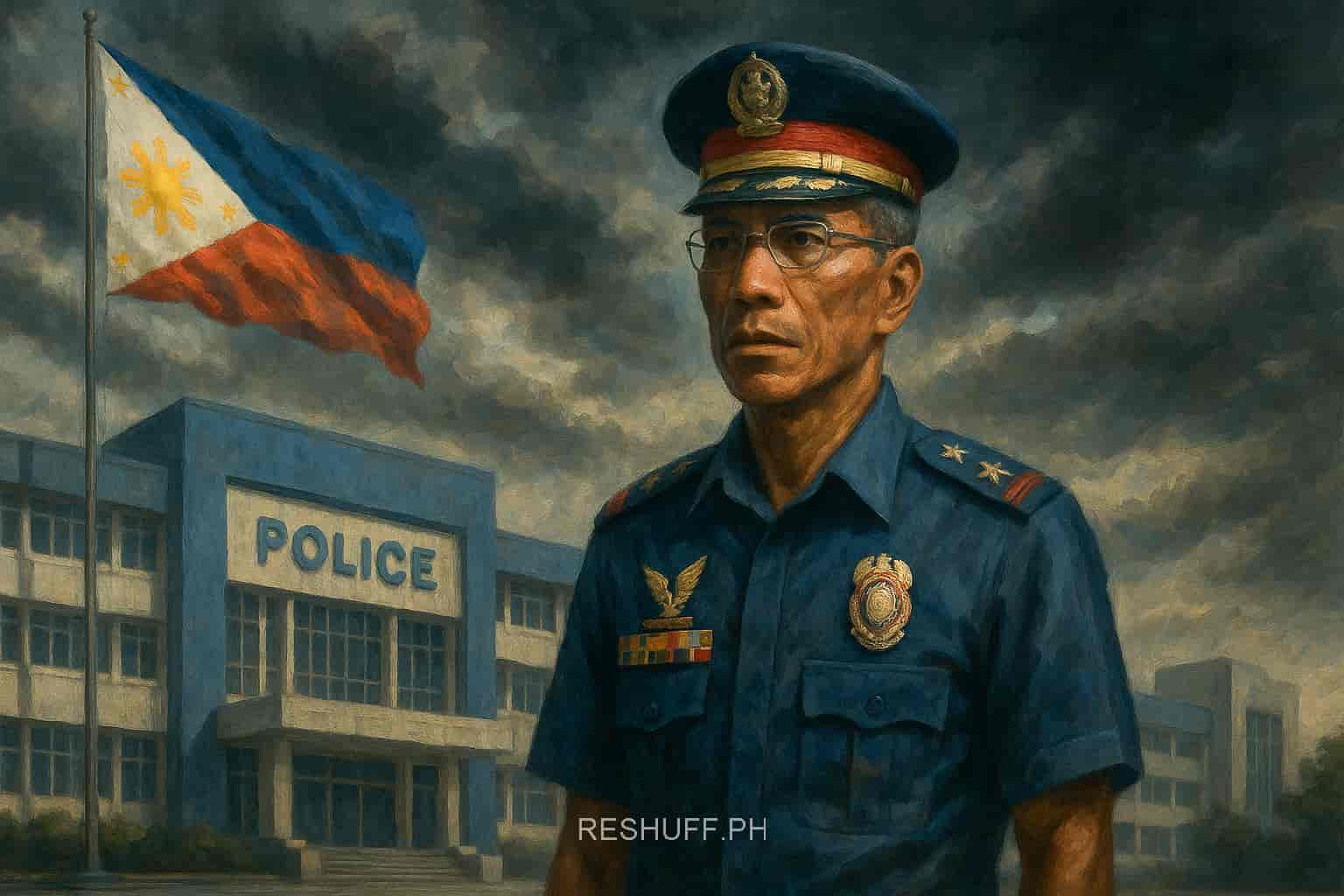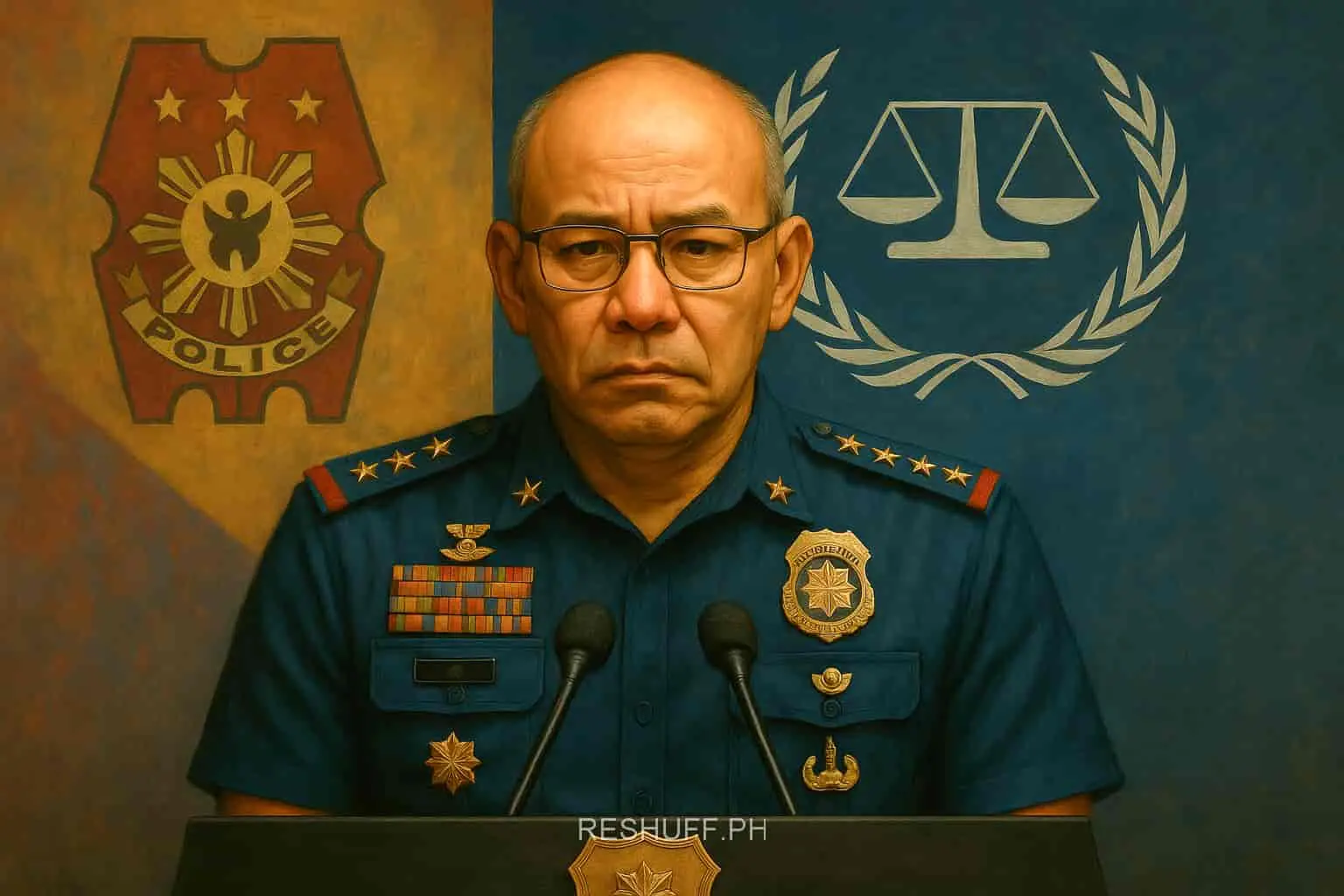The Shockwave: A Nation Holds Its Breath
A seismic shift just rocked the heart of Philippine law enforcement. The man who oversaw the historic arrest of former President Rodrigo Duterte is now set to lead the entire Philippine National Police (PNP). Police Major General Nicolas Torre III has been named the new PNP chief, an announcement Executive Secretary Lucas Bersamin made on Thursday, May 29, 2025, with a mix of gravity and strategic calm. This appointment instantly connects the nation’s top police post to one of the most high-profile and politically charged events in recent Philippine history, signaling a profound moment for the country’s security landscape.
The Official Unveiling: A New Era Begins
Executive Secretary Lucas Bersamin confirmed the appointment during a Palace press conference. The turnover of command is set for June 2nd, signaling a swift transition. Torre will be replacing General Rommel Marbil, who is scheduled to retire on June 7, 2025.
The accelerated timeline for Torre’s assumption of command, occurring before General Marbil’s official retirement, suggests a deliberate and decisive move by the President. This is not merely a routine, scheduled succession that waits for an incumbent to complete their term. Instead, it appears to be an active, strategic intervention, reinforcing later statements by Executive Secretary Bersamin about the President’s commitment to a government that works quickly, delivers results, and meets the expectations of the Filipino people. The President, Bersamin noted, will not hesitate to make necessary changes to keep the government moving forward.
A Past Forged in Fire: The Man Behind the Badge
Before ascending to this top post, Torre served as the director of the PNP Criminal Investigation and Detection Group (CIDG). In this role, he oversaw several high-profile cases that thrust him into the national spotlight.
One such case was the arrest of alleged sex offender Apollo Quiboloy, founder and leader of the Kingdom of Jesus Christ church. What began as a whisper of a warrant quickly became a roar of confrontation. Torre notably led the attempt to serve an arrest warrant against Quiboloy at his Kingdom of Jesus Christ (KOJC) compound in Davao City. The operation escalated into a tense standoff, with KOJC members locking and guarding the gates, leading to a police barricade. Davao City Mayor Baste Duterte openly questioned the “integrity and legality” of the police operations, but Torre insisted the police would pursue the search “until Quiboloy is found”. Quiboloy eventually surrendered voluntarily. Later, during a Senate hearing, Torre was compelled to admit controversial tactics: police “dug a hole with the presence of engineers, an architect present, and even hired civilians dressed in PNP uniforms” during the operation. This admission led Senator Bato Dela Rosa and the KOJC to announce plans to file cases against the PNP for these actions.
More recently, and arguably his most significant action, Torre executed the International Criminal Court (ICC) arrest warrant for former president Rodrigo Duterte for alleged crimes against humanity. The former president was immediately transported to The Hague on March 11, 2025, a move that sent shockwaves globally.
However, Torre’s career has not been without its bumps. Sometime after graduating from the Philippine National Police Academy (PNPA) in 1993, he served as the provincial director of Samar Provincial Police Office until his dismissal in 2019. The provincial board cited his “failure of leadership to fight criminality and joining in a partisan political activities” as the reason. This past dismissal for leadership failure and partisan activities, juxtaposed with his elevation to the highest police leadership position, presents a stark contradiction. It suggests that the criteria for top appointments may be fluid, or that certain past actions are reinterpreted as strengths, particularly when aligned with the current administration’s agenda.
His tenure as chief of the Quezon City Police District (QCPD) starting in August 2022 was also controversial. He drew public outcry for hosting a press conference for retired Patrolman (PO1) Wilfredo Gonzales, known for gun-toting a cyclist in the Welcome Rotonda incident. Torre appealed to the public for “compassion” and to “stop crucifying” Gonzales, but later apologized for giving “VIP treatment”. The cyclist’s lawyer, Raymond Fortun, even accused Torre of texting him to dismiss the case against Gonzales, an accusation Torre dismissed before resigning.
A consistent pattern emerges from these events: Torre is repeatedly involved in highly sensitive, often controversial situations. He demonstrates a proactive, decisive, and sometimes boundary-pushing approach to achieving objectives, particularly in politically charged cases. This “get-it-done” mentality, especially for tasks with significant political ramifications, appears to be a key factor in his ascent. It signals the kind of leadership valued at the top of the PNP under the current administration.
The President's Discretion: Power and Purpose
When asked if Torre’s high-profile arrests were factors in his selection, Bersamin responded cautiously: “I can’t say that because the president always demands performance. No matter what is ordered of you, you must exhibit some level or a high degree of performance”. He added, “Maybe that is one, I’m not going to discount that…but there may be other qualities of Gen. Torre that he might have considered in comparison to the qualities of those others who were not given this responsibility”.
Bersamin then emphasized that the specific “elements” considered were confidential, stressing that the decision was strictly the president’s discretion, which is “absolute”. “No one can question the use of that discretion… call it inscrutable,” Bersamin asserted. This communication strategy allows the administration to hint at merit, such as Torre’s “performance” in high-profile cases, without explicitly confirming politically sensitive motivations. Simultaneously, by invoking “absolute discretion,” it asserts the President’s unchallengeable authority in such appointments, managing public perception by appearing transparent while reserving the right to make decisions without full disclosure.
Bersamin assured the public of a “smooth transition” to “ensure continuity and stability” in leadership changes across various agencies. He clarified, “This is not a purge, let me remind you of that, this effort is the President’s commitment to a government that works fast, delivers results, and meets the expectations of the Filipino people”. The very need to make this statement suggests an awareness of potential public or critical perception that these rapid, high-level changes could be a “purge” or politically motivated reshuffle. By proactively denying a “purge,” the administration attempts to control the narrative, framing these changes as efficiency-driven and beneficial for the public, rather than retaliatory or disruptive.
Beyond the Headlines: A Broader Shift
During the same press conference, Bersamin also announced other significant concurrent appointments. Shirley Agrupis was named the new chair of the Commission on Higher Education (CHED), replacing Prospero de Vera III. Additionally, Darlene Berberabe was named the new Solicitor General, replacing Menardo Guevarra. The simultaneous announcement of these key appointments indicates that these are not isolated incidents but rather part of a coordinated effort by the President to reshape vital government agencies. This suggests a deliberate strategy by the current administration to consolidate its team and ensure that critical positions are filled by individuals who align with its vision and agenda, reinforcing the narrative of a “government that works fast, delivers results”.
Looking Ahead: The Road Paved by Controversy?
Torre’s appointment as the new PNP chief marks a pivotal moment for Philippine law enforcement. His history, characterized by both controversial actions and decisive execution of high-stakes, politically sensitive orders, suggests a particular kind of “performance” is being prioritized by the current administration. This performance involves decisive action, even if it comes with controversy or pushes legal boundaries, especially in cases with significant political ramifications.
His leadership could signal a shift in the operational ethos of the PNP, raising critical questions about the balance between strict adherence to legal protocol and the perceived need for rapid “results.” This appointment sets a precedent for what qualities are truly valued and rewarded at the top tiers of law enforcement in the Philippines, potentially shaping the future direction of policing in the country. The nation watches, with bated breath, to see how Torre’s controversial past will shape the future of the Philippine National Police and, by extension, the nation’s security.
Reshuff PH
Latest News In The Philippines brought to you by Reshuff PH




